Today, I want to talk about one of the most common misconceptions that I hear from managers when it comes to managing their team: “If I love people, then that will make me a good manager.”
I hate to be the bearer of bad news, but unfortunately…that’s not enough.
You can love working with people, mentoring them, and developing them…and still not be a good manager.
If you love working with people, that’s great—that’s a huge piece of what makes a good manager. If you don’t like people, I don’t think you should be managing. But there are other things we need to master in order to be good managers.
This misconception quickly become a trap; we end up thinking if we just give more, if we just listen more, if we just coach more, then the people we’re managing are going to thrive. And when we have that belief, we do things like avoiding hard conversations, shying away from giving difficult feedback, and holding people accountable, because we’re worried about rocking the boat or hurting someone’s feelings.
We can also avoid setting clear expectations because we want our team members to feel that we believe in then. So we’ll confidently say, “Just run with it. I trust you. Go for it!”
…And then the final result looks nothing like what we wanted.
But that’s not because our team members didn’t try—it’s because we didn’t paint a picture of what success would look like on that project. We gave them nothing to work with, blindfolded them, and left them to paint that picture themselves.
Instead of relying on our ability to encourage, mentor, and offer support to be good managers, I’d like to encourage you to add three other tools to your management toolbox…
Listen on Apple | Listen on Google | Listen on Spotify
Three Tools to Make You a Good Manager
Set Expectations
You’ve heard it here before: we have got to set expectations with our team members around working norms, behavior norms, communication norms, when to be in the office, when to be online, how to track work, etcetera.
All of these things paint a picture for them that says, “Hey, this is how you do a good job on this team or in this company.”
Expectations are the foundation that everyone needs to know where they stand. They’re the foundation that we can then point to in order to give concrete feedback. If we haven’t set expectations, just telling people to keep doing what they’re doing…it feels hollow to them. There’s no bar for them to reach for. There’s no metric to measure their improvement by.
Give Regular Feedback
The next thing we want to do in order to become good managers is give regular feedback; both positive recognition and constructive criticism.
While it can be really hard to hear that something you’ve been working really hard on didn’t go well, good managers can’t avoid giving that feedback because they want to be liked.
When we think liking people is enough to make us a good manager, we can also fall into the trap of also wanting people to like us back. This throws us straight into the people-pleasing zone, and we end up afraid to deliver feedback.
In fact, maybe instead of giving feedback…we just clean up the mess behind the scenes.
I see so many business owners doing that. They’re going in and fixing the design file. They’re going in and rewriting the email. They’re going in and fixing the pitch for the client…when they are paying people to do that job.
This is why, from a team operations standpoint, this mindset can get really expensive for you really fast. If you’re going in and fixing everything, then you’re now paying two people to do that job.
When good managers give feedback, they’re not being mean or nitpicking—they’re actually demonstrating that they’re invested in people. They’re invested in mentoring their team members and seeing them improve, which shows that they believe in and want the best for them.
Now, I won’t lie to you: giving feedback can be scary, even for good managers. And sometimes it doesn’t go well. Someone might end up offended or defensive. But that doesn’t mean we shouldn’t do it.
Create a Culture of Accountability
The third thing good managers do is fostering a culture of accountability.
Once you’ve set those expectations and you’ve given feedback, accountability is the follow-through.
When you say something, does it go in one ear and out the other? When you say something really matters on your team, are you following through on that? When you say, “Hey, we’re not going to operate this way,” and you have a team member that goes against that, do you take action?
Your entire team is watching you. They’re going to see that you like everyone and you’re nice and you’re a good manager, but if you don’t follow through with accountability, they’re not going to like you back.
Honestly, accountability needs a rebrand. The word has the most negative connotations ever. We all associate it with punishment and blame, but that’s not it at all.
Accountability is ownership. It’s follow-through. It fosters responsibility. These are all really positive qualities that we are losing out on by not building that culture.
When we reframe that negative definition of accountability and we create an environment where people feel that when you talk about something or make a decision, it actually matters, that will cause a huge, positive shift in your team culture.

Take Your Toolbox and Get Managing!
When you do these three things, you create the conditions for your team members to be successful and excited about the work. And when that passion gets stirred up, they’re going to trust you even more as that mentor and coach that’s really invested in them.
This doesn’t mean good managers shouldn’t be kind to people and encourage them. Those things just have to go hand-in-hand with the other tools in a good manager’s toolbox.
If we feel like someone really likes us and supports us, but they don’t have a direction, they don’t really know what success looks like, and they don’t follow through on stuff, we end up feeling like we don’t have a path on the team. So a manager might get along great with their team, but those team members aren’t going to stick around if they feel they have no path forward.
Not sure how to get a grip on these concepts yourself? Good news—I have a new resource that can help!
My brand-new book, The Unstoppable Team, just released. Inside, you’ll find all of the insights and tools that I have shared with business owners, team leaders, and entrepreneurs on how to communicate better with their teams, make managing easier in general, set clear expectations…all the good stuff!
You are not going to want to miss this. You can grab it on Amazon or head to my website to pick up a copy!
Let’s commit together right now: we’re not going to lean on the fact that we get along great with folks like that’s enough to be a great manager. We also have to do these fundamental things—setting expectations, giving feedback, and creating accountability—in order to give ourselves the whole package!
WORK WITH LIA:
Get your hands on a copy of my new book, The Unstoppable Team! Grab your copy HERE
Want a checklist of things you can do THIS week to become a better manager (and make your job easier)? Check out my Thriving Team Checklist for a list of quick actions you can take right away with your team: https://www.liagarvin.com/checklist
Book a FREE Scale-up strategy call to for strategies to scale your team and get time back for yourself: calendly.com/liagarvin/scaleup-strategy?back=1&month=2023-08
CONNECT WITH LIA:
Website: https://www.liagarvin.com/
Instagram: https://www.instagram.com/lia.garvin/




